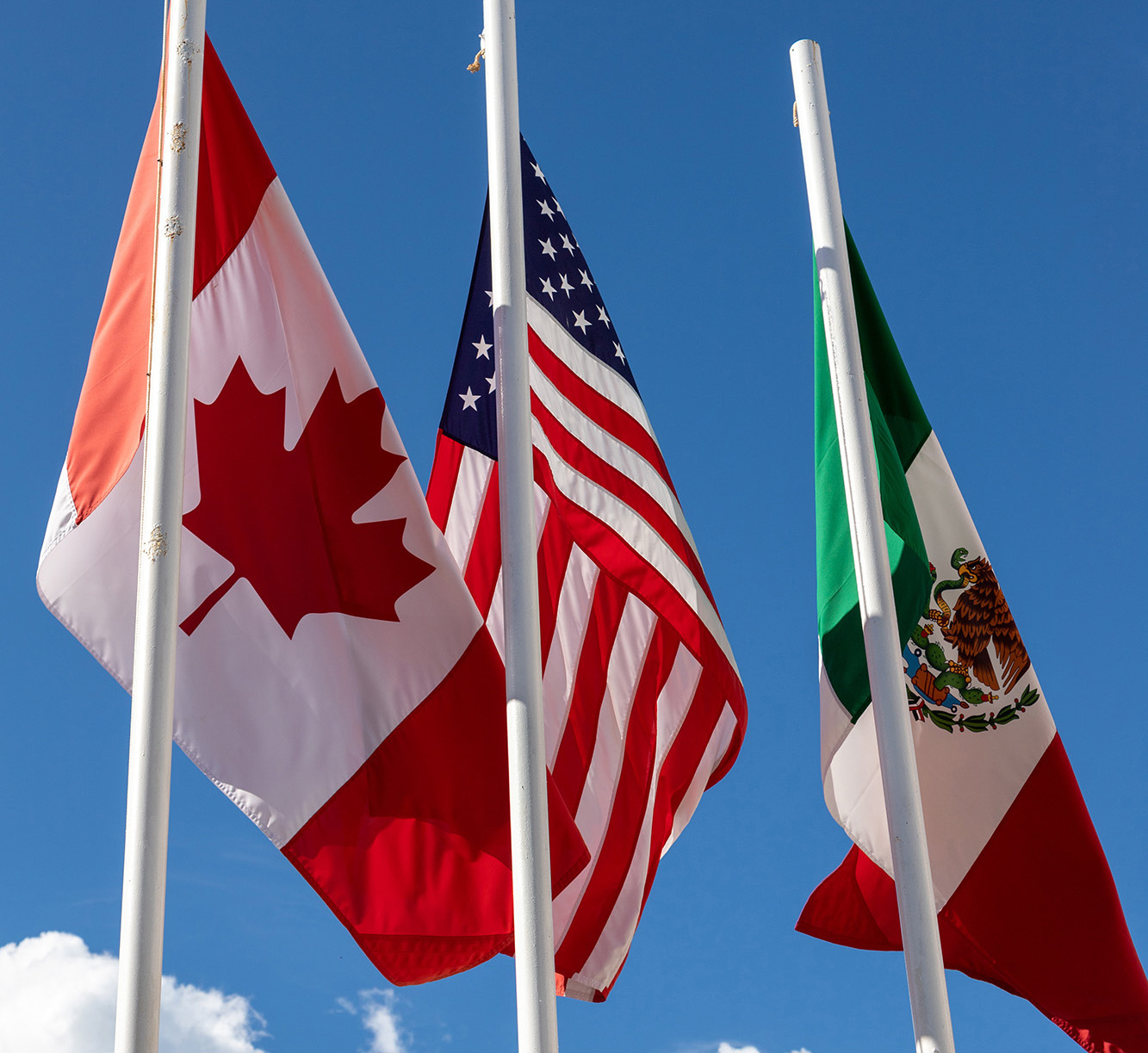New Hampshire businesses praised the U.S.-Mexico-Canada Agreement in a virtual roundtable by Congressman Chris Pappas on July 1 — the date the updated trade deal took effect.
“Anything we can do to streamline and simplify the process of exporting and importing helps create opportunity,” said Mark Elliott, senior manager of corporate affairs at Velcro Companies, whose North American headquarters has been based in Manchester for more than 60 years.
“Twenty-five percent of our workforce is based here, so it’s a very important part of what we do in our local supply chain.”
There are a lot of similarities between the updated trade agreement and its predecessor, said Elliott, but a much-needed update to the North American Free Trade Agreement, or NAFTA, which went into effect in 1994, was needed.
Canada is New Hampshire’s No. 1 trading partner, with
Mexico closely behind. New Hampshire businesses exported $860 million
in goods to Canada in 2019 and $408 million to Mexico.
Another
change in the new trade deal is the local content requirement for
goods, which has been raised from 62.5% to 75%. That is good news for
Hutchinson Sealing Systems, a global manufacturing company with a plant
in Newfields that develops rubber and thermal plastic weather strips for
General Motors, Ford, Chrysler, Honda and Nissan.
“We’ve
been developing sources in Canada to purchase plastic components that
go along with our sealing systems for the last 20 years,” said Newfields
Plant Manager Paul Macdonald. “Just over the border, they have a really
good infrastructure for tool and die makers and the like, so we’re able
to purchase some very significant tooling and equipment from Canadian
suppliers.”
Dave Juvet, senior vice
president of public policy for the Business & Industry Association
of New Hampshire, added that the benefits of the deal aren’t just in New
Hampshire businesses being able to export more to the two countries,
but “it’s equally important for the import of products.”
“A lot of our manufacturers are component manufacturers,”
said Juvet. “They’re not producing a final product — they’re producing
parts for automobile companies and they’re very reliant not only on the
ability to export but the ability to import raw products.”
Pappas
praised the passage of the USMCA agreement, which brings some certainty
to businesses during “some of the most uncertain economic times for our
businesses.” He said the USMCA will help with decreasing delays with
medical equipment and pharmaceuticals.
Pappas,
who serves on the House Committee on Transportation and Infrastructure,
said during a committee meeting there were concerns about seaports and
products backing up as a result of disruptions, especially due to
availability of crews and ships that transport goods overseas.
— LIISA RAJALA